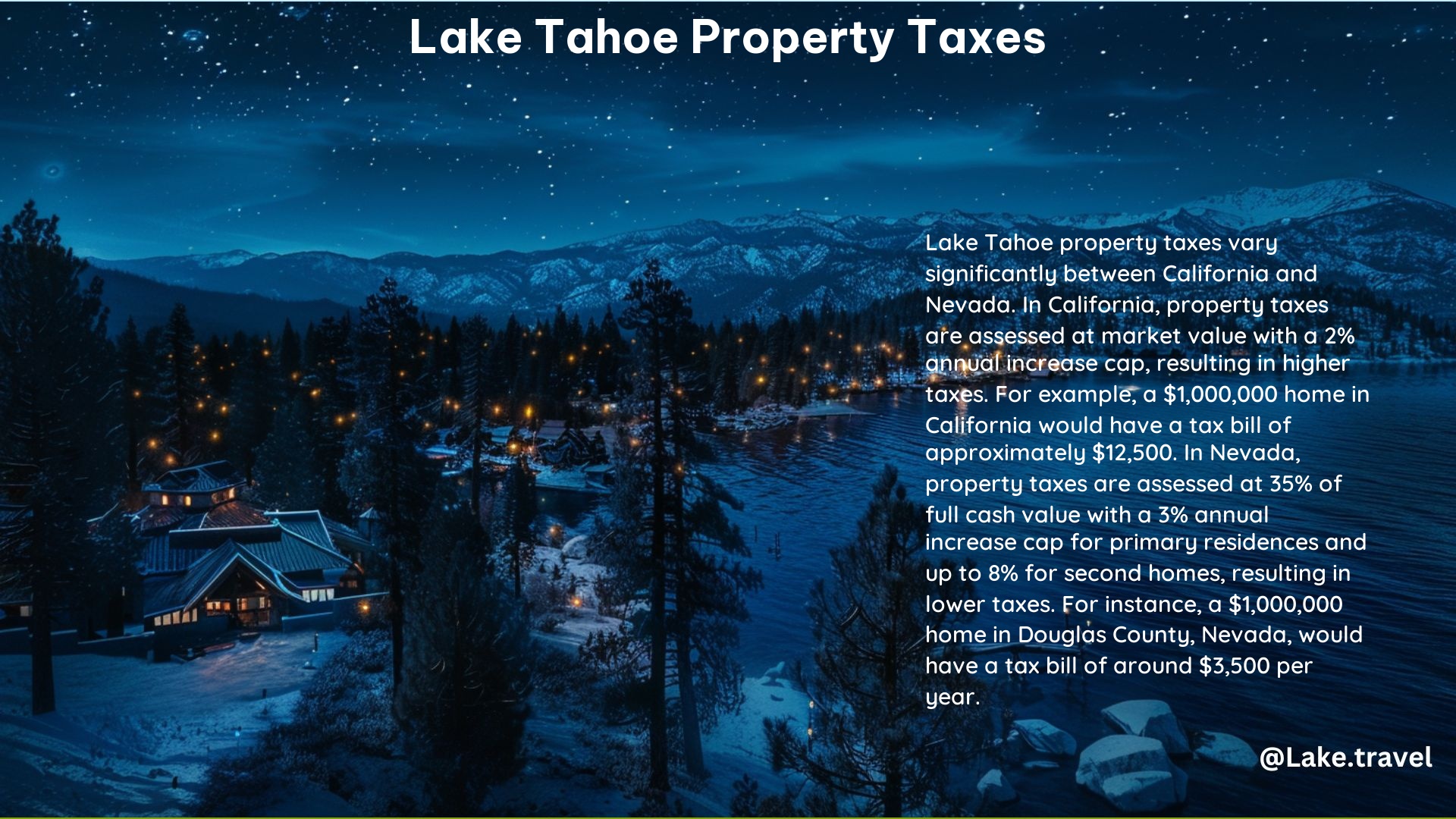Lake Tahoe, a popular tourist destination, straddles the California-Nevada border, offering a unique contrast in property taxes between the two states. Understanding these differences is crucial for those considering purchasing a home in the area.
California Property Taxes
Properties in the California side of Lake Tahoe, specifically in El Dorado County, are subject to the following property tax rules:
- Tax Due Dates: Property tax bills must be mailed by November 1 each year, with two installments due. The first installment is due November 1, and the second is due February 1.
- Assessment: Properties are assessed at market value at the time of purchase. The assessment can only be increased by 2% annually due to Proposition 13.
- Tax Rates: The effective tax rate in California is 0.75%, with an average property tax payment of $5,387 in 2018.
Nevada Property Taxes

On the Nevada side of Lake Tahoe, property taxes are governed by the following rules:
- Washoe County: Property taxes are assessed every 5 years, with rates higher than those in Douglas County. The county’s tax structure is closer to California’s.
- Douglas County: Taxes are significantly lower, with a property tax bill of approximately $3,500 per year for a $1,000,000 home. The county caps annual increases at 3% for primary residences and up to 8% for second homes and rentals.
- Assessment: Properties are assessed at 35% of their full cash value, with a 3% cap on annual increases for primary residences.
- Tax Rates: Nevada has the fifth lowest property taxes in the U.S., with an effective tax rate of 0.58%. The average property tax payment in 2018 was $2,138.
Vacancy Tax in South Lake Tahoe
In addition to the differences in property taxes between California and Nevada, there is a unique proposal in South Lake Tahoe:
- Proposal: A ballot measure in South Lake Tahoe aims to impose a tax on vacant properties, with a levy of up to $6,000 annually for homes left unoccupied for more than six months. The revenue generated would be used for affordable housing, road repair, and public transportation.
Key Takeaways
- Tax Comparison: Nevada property taxes are significantly lower than those in California, with a lower effective tax rate and lower average annual payments.
- Vacancy Tax: The proposed vacancy tax in South Lake Tahoe aims to incentivize homeowners to rent out their properties, addressing the housing shortage in the area.
